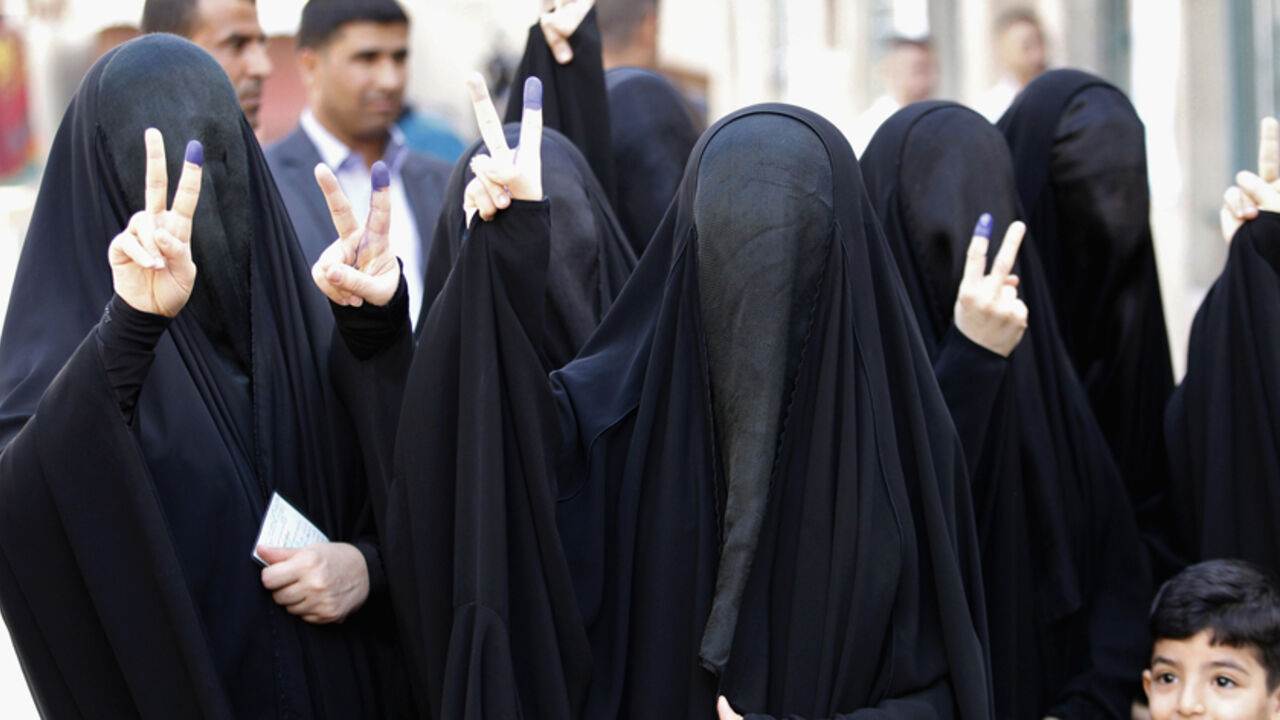Amended, Suspended, and Implemented: What does the recent legislation mean for Iraqi women and girls?
Informational article by Kate Wilkins

In August of 2024, the Iraqi legislature proposed a significant amendment to the Personal Status Law No. 188 of 1959. The Personal Status Law, considered a relatively progressive piece of legislation compared to those adopted by neighboring countries, established regulations limiting Islamic influence over family matters, including marriage, divorce, and inheritance. This legislation provided people, especially women, with protection from religious rulings on personal matters. Many advocates have praised the Personal Status Law for protecting children and women from potentially harmful marriages, as it prohibits coerced marriage and marriages of children under the age of 18. The Personal Status law served as a landmark decision for preventing child marriage and granting citizens more autonomy.
The proposed amendment sought to reduce the limitations outlined in the Personal Status Law by leaving certain family and marriage matters up to the interpretation of Islamic Courts and clerics. Many believe this amendment shows regression in liberal policies and a return to “pre-state conditions”. The president of the Organisation of Women's Freedom in Iraq, Yanar Mohammed, spoke on the proposed amendment, saying it would, "terrorise Iraqi women and civil society with a legislation that strips away all the rights that Iraqi women gained in modern times." Proponents of the amendment, mainly Shiite conservative groups, argue that this amendment will help align Iraqi law with religious practices and mitigate foreign influence over laws. Opponents, however, contend that these amendments would have detrimental consequences for women and children; under more conservative religious practices, such as the Jaafari school of thought, girls as young as nine could be permitted to marry. This amendment would also impact women’s ability to inherit land and their treatment in divorce proceedings. The human rights advocacy group Walk Free remarked, “This change significantly reduces protections for women and children, exposing them to greater risks of exploitation and abuse. The law also restricts women’s access to fundamental rights, including divorce, child custody, and inheritance, which are all important for their autonomy and safety. These restrictions could leave women and girls increasingly vulnerable in a country already facing significant instability.” Given the multiple sects of Islam throughout Iraq, in practice, this amendment could lead to vastly different interpretations and legal rulings depending on the religious authority overseeing a case.
In late January 2025, the amendments to the Personal Status Law were passed. Despite earlier concerns about marriages for young children, the final draft of the amendment specified that both parties must be an adult, but failed to define what age constitutes an “adult”. The amendment passed alongside two other divisive bills: an amnesty bill, that could potentially release Sunni prisoners charged with embezzlement and detained militants accused of war crimes, and a land restitution bill that would restore land to the Kurds and potentially displace Arabs in the process. Legislators and advocates alike contested the voting process because all three bills - despite their drastically different content and implications - were voted on at once. Additionally, an anonymous source from parliament reported that the majority of lawmakers present didn’t vote, saying, “Half of the lawmakers present in the session did not vote, which broke the legal quorum.” Members of parliament thought this might pose another legal error in the amendment’s passage.
In early February, the amendment was suspended by Iraq's top court, temporarily blocking it from taking effect due to concerns over procedural violations in the voting process. However, after being suspended for roughly a week, Iraq’s Federal Supreme Court reversed the temporary suspension placed on the three bills, allowing them to move forward.
While there is limited information on the timeline for implementing the new laws, the amendment stipulates that people can choose whether to be under the jurisdiction of civil or religious courts for family matters, with the Shiite Endowment Office expected to provide parliament with religious guidelines to be used going forward.A local Iraqi woman, Rasha, protested the proposed amendment back in August and told journalists, "I don't even know why they want to do this…I think they just hate the rights of women, and that's why they want to change this law. Really, I thank God I am not married, that I don't have to worry about my children in the future." Although the future of women's marital rights in Iraq remains uncertain, human rights organizations and individuals will undoubtedly continue to advocate for these women in the coming months. Throughout uncertainty and oppression, the resilience of women remains a beacon of hope. Ever since the proposed amendment last fall, women have taken to protesting and speaking out via demonstrations and petitions, which have attracted media attention. As the legislation has been amended, suspended, and implemented, it is clear that many women’s rights are still in jeopardy. However, through it all, the advocacy of women continues to persevere.
